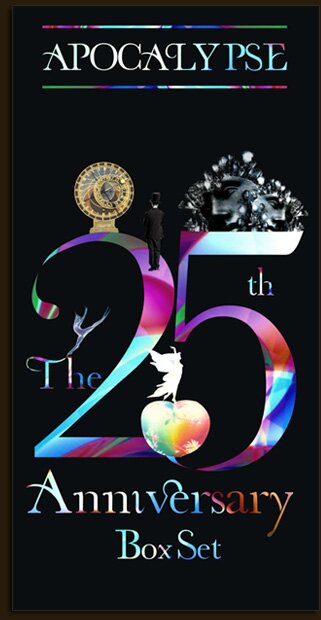
Jackie Chan Movies: Stunts, Heart, And Humor
When you think of Jackie Chan movies, you’re not just picturing wild stunts or perfectly timed punches—you’re stepping into a world where heart and humor shape every action scene. You’ll notice how seamlessly the comedy blends with serious moments, making every film a unique ride. What makes his work stand out in a genre packed with clichés? You might be surprised by just how much goes on behind those thrilling fight sequences.
The Rise of a Martial Arts Legend
Jackie Chan's early career featured a series of modest roles, but his breakthrough came with the release of "Drunken Master" in 1978. This film significantly altered the landscape of the martial arts genre, showcasing Chan’s distinct strengths, including his expertise in stunt work, comedic timing, and inventive fight choreography.
Following this transformative period, the "Police Story" series further solidified Chan's legacy within the film industry. These films are characterized by their innovative stunts and complex choreography, which contributed to a redefinition of martial arts cinema.
Chan's ability to blend humor with action differentiated him from his contemporaries and has provided inspiration for numerous filmmakers worldwide.
His commitment to performing his own stunts hasn't only established him as a martial arts icon but has also positioned him as a pioneering figure whose influence is evident in both Eastern and Western film industries.
Chan's approach has led to a broader appreciation of martial arts as a serious cinematic genre, impacting how action films are produced and perceived.
Unforgettable Action-Comedy Classics
Jackie Chan's filmography is notable for its innovative choreography and stunts, which have played a significant role in redefining martial arts cinema. His work encompasses a unique combination of action and comedy that has resonated with audiences. Films such as "Rush Hour" and "Shanghai Noon" exemplify this action-comedy genre, featuring Chan's dynamic fighting style, intricate stunt work, and engaging screen presence.
In addition, titles like "Police Story" and "Mr. Nice Guy" are recognized for their ability to combine humor with high-stakes action, ensuring an entertaining experience without diminishing the intensity of the confrontations.
Similarly, "Armour of God" and "Rob-B-Hood" include elements of emotional depth alongside the typically chaotic sequences, which illustrates Chan's capability to merge comedy, action, and heartfelt moments effectively.
Jackie Chan’s Signature Stunt Work
Jackie Chan's contributions to action cinema are characterized by his innovative approach to stunt work, which differentiates his films within the genre. His performances are notable for the integration of martial arts, physical comedy, and precise choreography. Chan's commitment to performing his own stunts is particularly evident in sequences such as the mall pole slide featured in "Police Story."
His technique often involves the creative utilization of everyday environments, which enhances the relatability and excitement of his action scenes. This emphasis on practicality and inventiveness allows for a distinct visual style that highlights the physical capabilities of the human body while minimizing the reliance on special effects.
Furthermore, Jackie Chan's approach to stunt work has had a significant impact on the industry, influencing a generation of stunt professionals and filmmakers. Through his work, he's reshaped expectations of what can be achieved in action films, aligning them closer to choreographed performance art.
This has set new standards for safety and creativity in stunt execution, fostering advancements in the field. Ultimately, Jackie Chan's legacy in action cinema is marked by his ability to blend thrill with relatability, paving the way for future innovations in stunt performance.
Iconic Collaborations and Buddy Adventures
Jackie Chan's filmography is notable for his partnerships with various co-stars, which often enhance both the action and comedic elements of his movies. In the Rush Hour trilogy, for instance, Chan's collaboration with Chris Tucker is characterized by a blend of humor and martial arts action, representing an effective comedic chemistry that resonated with audiences.
Similarly, in Shanghai Noon, his pairing with Owen Wilson showcases a dynamic interplay between Chan's acrobatic fighting style and Wilson's comedic timing, contributing to the film's appeal.
In Skiptrace, Chan's partnership with Johnny Knoxville introduces a different flavor of humor, leveraging Knoxville's background in physical comedy to complement Chan's action-oriented performance.
Furthermore, the Police Story series exemplifies Chan’s ability to work with diverse co-stars, emphasizing themes of camaraderie and friendship that often punctuate his films.
These collaborations demonstrate how pairing Chan with various actors not only facilitates comic relief but also enhances the narrative depth and emotional engagement of his stories.
The interplay between his characters and their counterparts plays a crucial role in the overall experience of his films, reinforcing the importance of chemistry and collaboration in cinematic storytelling.
East-Meets-West: Cultural Crossovers
Jackie Chan effectively bridges cultural gaps in his films through a deliberate blend of his Chinese heritage and Western cinematic elements. In the Rush Hour series, for instance, the partnership with Chris Tucker not only highlights comedic contrasts but also facilitates an exploration of cultural differences and their eventual reconciliation. The film's narrative structure revolves around characters from distinct backgrounds learning to work together, which reflects a broader dialogue about multiculturalism.
Similarly, Shanghai Noon represents a fusion of Chinese martial arts with the Western genre of cowboy adventures. This combination underscores Chan's ability to create narratives that resonate across cultural divides, showcasing the potential for collaboration and understanding between different traditions.
His work in films such as The Accidental Spy and Skiptrace further exemplifies this trend, as they incorporate diverse cultural settings and storytelling techniques.
Jackie Chan's international appeal can be attributed to his unique approach to filmmaking, which allows audiences to appreciate both Eastern and Western cultural elements. His success has demonstrated that it's possible to celebrate multiple cultures within a single narrative framework, ultimately enriching the viewing experience by fostering a sense of shared understanding among diverse audiences.
Essential Films for New and Longtime Fans
Jackie Chan films are notable for their unique blend of action, comedy, and innovative stunt work, making them essential viewing for both new audiences and long-time fans. One of Chan's defining characteristics is his ability to perform complex stunts that often involve elaborate choreography and physical comedy, setting his films apart from conventional action movies.
"Drunken Master" serves as a significant entry point, showcasing Chan’s distinctive style of martial arts that combines humor and agility. It's recognized for its influence on the genre and is a demonstration of Chan's skill and creativity.
Another critical title is "Police Story," which is often regarded as one of Chan's finest works. It features inventive action sequences and practical effects, highlighting Chan's commitment to performing his own stunts.
Similarly, "Operation Condor" presents a well-constructed narrative and impressive action set pieces, further establishing the formula Chan has popularized.
"Rumble in the Bronx" marked Chan’s entry into the North American market and provided a cultural fusion of Western elements within an urban setting, broadening his appeal.
Meanwhile, "Rush Hour" demonstrates Chan’s adeptness in comedic timing and interaction with co-stars, contributing to its commercial success in the United States.
More recent titles, such as "Skiptrace," continue to reflect Chan’s consistent approach of merging action with humor and personality. Overall, Jackie Chan’s films are integral to understanding the evolution of action cinema, particularly in their innovative approach to stunts and genre blending.
Jackie Chan’s Lasting Legacy in Cinema
Jackie Chan's impact on cinema is significant and multifaceted. His career is marked by a series of films that showcase his unique blend of action and comedy, challenging traditional norms within these genres.
Chan's approach to stunt work is notable for its emphasis on safety and innovation, which not only expanded the scope of what action sequences could entail but also set a new standard for authenticity in filmmaking.
By performing his own stunts, Chan has effectively influenced filmmakers to prioritize realism and physicality in their productions. His ability to integrate humor into action sequences has played a crucial role in redefining the action-comedy genre, demonstrating that these elements can coexist harmoniously rather than being mutually exclusive.
Moreover, Chan's appeal has transcended cultural boundaries, contributing to the global popularity of martial arts films. His work has received recognition not only in the Asian film industry but also in Western cinema, leading to collaborations that have further diversified the scope of action films.
Conclusion
When you watch a Jackie Chan movie, you’re in for so much more than action—you get jaw-dropping stunts, genuine laughs, and heartfelt moments all at once. Chan’s energy and creativity break barriers, proving that martial arts and comedy belong together. Whether you’re a new fan or a longtime admirer, his films let you experience cinema magic firsthand. With every leap and punchline, Jackie Chan reminds you why he’s a true legend.



 Blue Earth - Apocalypse, Orchestra and Choir Apocalypse 25th Anniversary Concert
Blue Earth - Apocalypse, Orchestra and Choir Apocalypse 25th Anniversary Concert